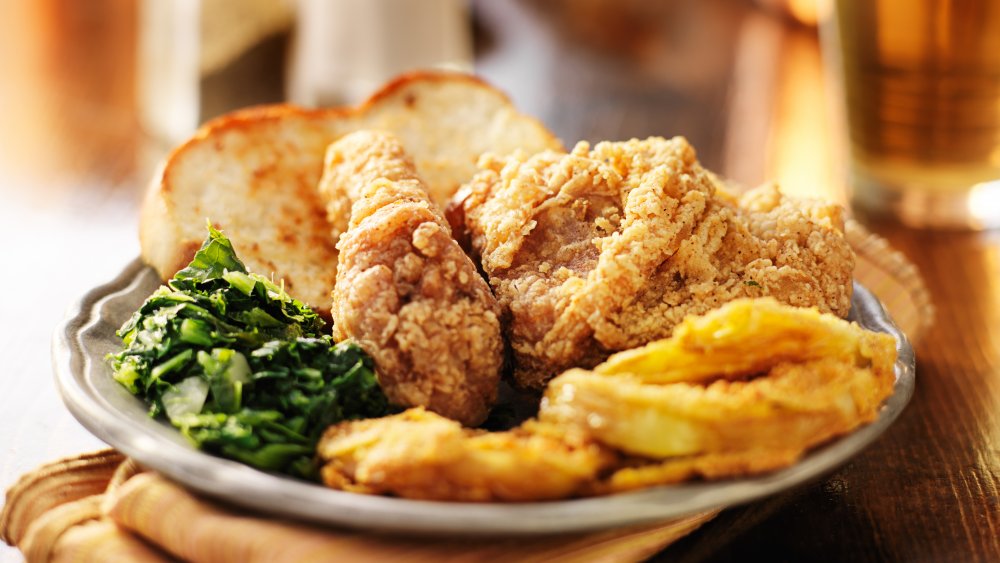The Real Difference Between Soul Food And Southern Food
Soul food and Southern food are similar in a lot of ways, so it can be difficult to truly separate the two. In the most general terms, according to How Stuff Works, all soul food is Southern, but not all Southern food is soul food. Confused yet? Soul food originated in the South, which is part of why it has so much overlap with Southern cooking, and distinguishing the two from each other isn't as easy as just listing off classic ingredients or traditional recipes.
There's also no one definition of Southern cooking, either. As The New York Times reports, there's plenty of variation in Southern cooking — each state and region has its own traditions and flavors, so don't expect Louisiana cooking to taste the same as food from the Carolinas. Plus, there are plenty of riffs on Southern food, too, including fusions with other cultures like Korean and Thai cuisine.
According to Chef Millie Peartree for Delish, the expression "soul food" was coined in the 1960s when the word "soul" was commonly being used across the country to describe African American culture (The New York Times reports that "soul" was also used by Black jazz musicians as a way of differentiating their work from white musicians copying similar styles). Peartree defines soul food as a style of cuisine historically created and eaten by African Americans living in the South, though she also notes that its traditions have been passed down through a number of generations.
What makes soul food and Southern food different?
Todd Richards and Virginia Willis, both authors of books on Southern cooking, also discussed the differences between soul food and Southern food with The New York Times, and both argue that the line between the two isn't completely clear, or entirely based on race. "Down here, I don't see the food being specifically black or white. It's more a question of who is doing the cooking," Willis told The New York Times.
According to The New York Times, the difference between soul food and Southern food is rooted more in class than race, and what families were able to afford to put on the table. The difference could be ending up with a more expensive chicken breast or wings with less meat on them. Willis and Richards also note that the strong flavors and spices that are associated with Southern and soul food evolved as a way of preserving dishes in the intense Southern heat.
There's no clear-cut answer for what differentiates soul food from Southern food, especially since the two evolved and developed side-by-side. How Stuff Works notes that some believe soul food originated from West African cooking, as techniques were handed down through generations and enslaved people in the South had to work with what they had available to them, which were often less-than-desirable rations. However, many sources agree that soul food comes from the heart. As Richards told The New York Times, "Soul food is a black art form. Soul food is a gospel, and chefs are its preachers. It can be handed down once you know it, and once you're proud of it."

